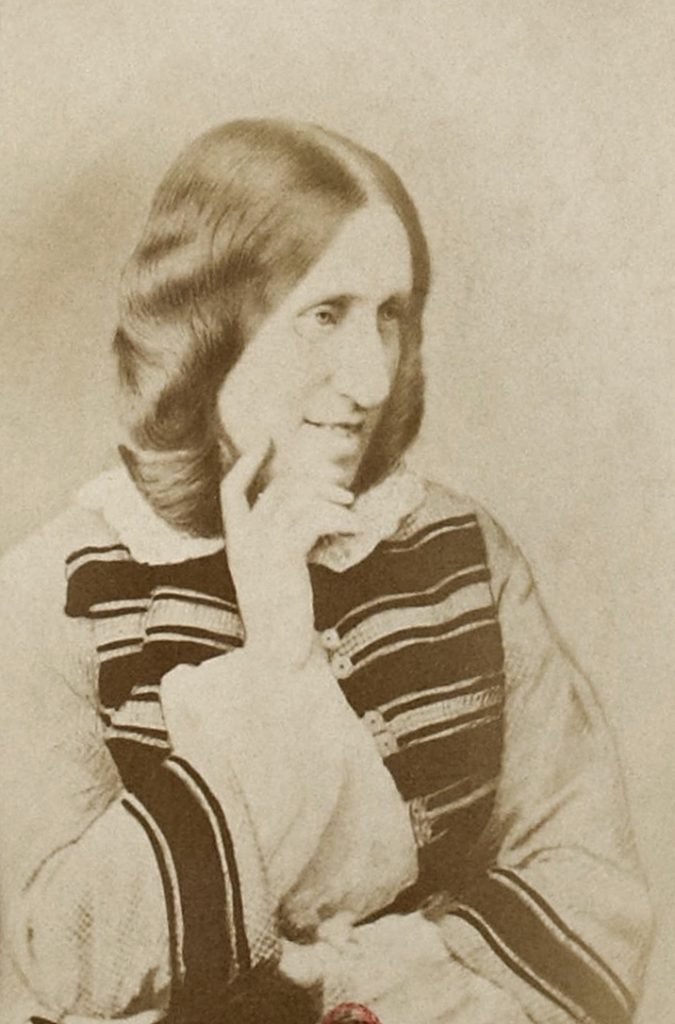Richmond Read-along 34

Welcome back to the Richmond Read-along! Today we are reading a poem by George Eliot. Best known for her prose, George Eliot is the pseudonym of Mary Anne Evans. She was highly educated for her time and wrote insightful novels that are still greatly admired today. She also lived in Richmond Borough for several years, and it was here that she first took up the name George Eliot.
Less well known than her novels and progressive attitudes are Eliot’s poems. Her first published work was a religious poem, before she broke with her Evangelical influences. We are reading one of her better knwon poems today, a musing on the afterlife afforded to those who leave a lasting impression on the world thorugh their art. In discussing life after death via the influence of great wordly accomplishments, Eliot displays her changing beliefs from conventional Christianity to a much less religious view, while still showing religious stylistic influences. The poem is “O May I Join the Choir Invisible:”
“O May I join the choir invisible
Of those immortal dead who live again
In minds made better by their presence: live
In pulses stirr’d to generosity,
In deeds of daring rectitude, in scorn
For miserable aims that end with self,
In thoughts sublime that pierce the night like stars,
And with their mild persistence urge man’s search
To vaster issues.
So to live is heaven:
To make undying music in the world,
Breathing as beauteous order that controls
With growing sway the growing life of man.
So we inherit that sweet purity
For which we struggled, fail’d, and agoniz’d
With widening retrospect that bred despair.
Rebellious flesh that would not be subdued,
A vicious parent shaming still its child,
Poor anxious penitence, is quick dissolv’d;
Its discords, quench’d by meeting harmonies,
Die in the large and charitable air.
And all our rarer, better, truer self,
That sobb’d religiously in yearning song,
That watch’d to ease the burthen of the world,
Laboriously tracing what must be,
And what may yet be better,—saw within
A worthier image for the sanctuary,
And shap’d it forth before the multitude,
Divinely human, raising worship so
To higher reverence more mix’d with love,—
That better self shall live till human Time
Shall fold its eyelids, and the human sky
Be gather’d like a scroll within the tomb Unread forever.
This is life to come,
Which martyr’d men have made more glorious
For us who strive to follow. May I reach
That purest heaven, be to other souls
The cup of strength in some great agony,
Enkindle generous ardor, feed pure love,
Beget the smiles that have no cruelty,
Be the sweet presence of a good diffus’d,
And in diffusion ever more intense!
So shall I join the choir invisible
Whose music is the gladness of the world.”
You can find this poem on Poets.org. Read more about George Eliot and her ties to Richmond in our Local History Note on her, available on Overdrive/Libby.
Join us tomorrow for the next Richmond Read-along!
